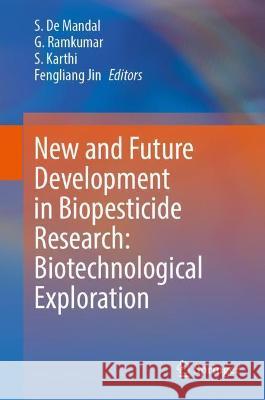New and Future Development in Biopesticide Research: Biotechnological Exploration » książka
topmenu
New and Future Development in Biopesticide Research: Biotechnological Exploration
ISBN-13: 9789811639883 / Angielski / Twarda / 2022 / 280 str.
Kategorie:
Kategorie BISAC:
Wydawca:
Springer
Język:
Angielski
ISBN-13:
9789811639883
Rok wydania:
2022
Wydanie:
2021
Ilość stron:
280
Oprawa:
Twarda
Wolumenów:
01
Dodatkowe informacje:
Wydanie ilustrowane











